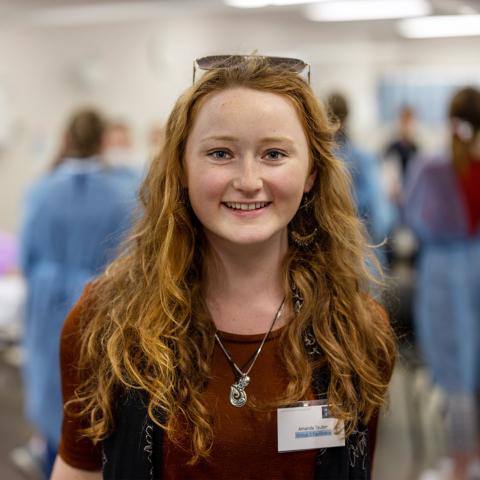In the wake of the 2024 United Nations International Day of Women and Girls in Science, Bond University researcher and educator Dr Amanda Tauber explains why students should put a science career under the microscope.
I never had a clear idea of what I wanted to be when I was growing up.
Throughout school, I considered almost ever career under the sun including criminologist, prosthetics designer, animator and, briefly, author.
And when the time came to select subjects in high school, I chose ones that I was passionate about, knowing that learning is far more enjoyable and sustainable when fuelled by curiosity.
But just as importantly, I considered subjects that would keep doors open to future opportunities.
So, alongside the essentials like English and maths, I opted for chemistry, biology, engineering, and accounting.
Reflecting on where I am now at 26, having completed my PhD in chemistry and working as a senior teaching fellow and postdoctoral researcher at Bond University, I couldn't be more proud of what I have achieved.
I also recognise how fortunate I am to work in an era where my journey in science has been filled with support, rather than barriers.

What I didn’t anticipate when I first entered the lab a few years ago was the absolute joy and sense of accomplishment I get from doing what I do every day.
I find inspiration and encouragement from both my peers and the scientists of the past, spanning diverse fields such as tissue engineering, molecular biology, chemistry, infectious disease prevention, astrophysics, and mathematics.
Yet despite the progress, the most recent UNESCO Science Report highlights the continued under-representation of women worldwide in computing, digital information technology, engineering, mathematics, and physics.
This situation brings a sense of loss, considering the exciting advancements and opportunities in these fields.
The rapid pace of progress and the accessibility of solutions to once complex problems makes this an incredible time to be involved in science.
Perhaps with a shift in mindset among young girls, we can focus instead on viewing science as a realm of curiosity, wonder, and a touch of magic.
Growing up in New Zealand, a TV show called Suzy’s World made science fun by exploring big questions about space, ocean tides, using cabbage as a pH indicator, and the science behind popcorn popping.
The experiments performed on the show seemed like magic to me as a child.
But magic or not, if you have even a little bit of wonder about the world and like to discover why things work and happen as they do, my advice is to follow that curiosity.
From the amount of work that goes into taking a single breath to the physics that allow us to fly a plane, there’s so much awesomeness to the world - and science gives us the keys to unlock so many doors.
When you see the mechanisms behind everything, when you get to look behind the curtain and see the complicated machines that we humans are, it’s very cool.
Almost everything we do is part of a much bigger picture.
Part of the research I did in my PhD was trying to create a molecule that would slow down cancer cell growth.
Although I didn’t quite achieve the perfect molecule, researchers around the world are still able to use and build on the knowledge we added.
And as I shamelessly use tomorrow to encourage women and young girls to consider a career in science, I must admit that if my parents had pushed me towards such a career when I was younger, I’d have run a mile.
Children tend to do that.
Don’t get me wrong, my parents were unfailingly supportive morally and financially, they were brilliant in every way, but a lot of it came down to me simply wanting to satisfy my own curiosity about the world around me.
So, to any women and girls reading these words, have a think about what you want to achieve in your lives and consider how your actions can improve the lives of others.
I love the balance between research and teaching, from being in the lab or office where you’ve got to figure out lots of things for yourself, to teaching in a classroom and helping shape the scientific brains of tomorrow.
A career in science brings both ups and downs, but the drive to satisfy our curiosity and make a meaningful impact on the world emerges when we take those first steps and let a bit of magic wash over us.